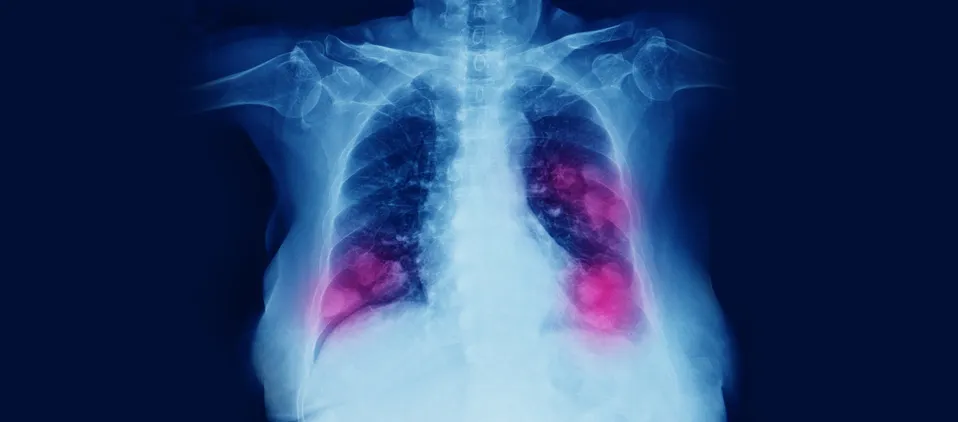
Lung cancer is one of the most common cancers among men and women in India. It accounts for 5.9% of all cancer and 8.1% of cancer deaths. Tobacco consumption is the leading cause of lung cancer in India. While smoking is the primary risk factor for lung carcinoma, non-smoking-related factors such as exposure to second hand smoke, indoor and outdoor air pollution, occupational exposures and genetic predisposition also contribute to the disease burden.
Common symptoms include
- A persistent cough
- Coughing up blood
- Chest pain
- Hoarseness of voice
- Shortness of breath
- unexplained weight loss, and fatigue.
However, it's essential to note that lung cancer may not cause symptoms in the early stages, which is why screening is crucial for high-risk individuals. Screening tests such as low-dose computed tomography (CT) scans are recommended for individuals at high risk, such as current or former smokers.
Treatment modalities in carcinoma lung include
- Surgery to remove the tumor and surrounding tissue is done if the cancer is localized to the lungs. This is often an option for patients with non-small cell lung cancer (NSCLC) in the early stages.
- Radiation therapy uses high-energy rays to kill cancer cells. It can be used alone or combined with chemotherapy and surgery . It's often used when surgery isn't an option or to shrink tumors before surgery.
- Chemotherapy uses powerful drugs to kill cancer cells. In lung cancer, which can spread quickly, chemotherapy helps to stop cancer from growing and spreading further. Sometimes, chemotherapy is given before surgery to shrink the tumor and make it easier to remove. This is called neoadjuvant chemotherapy. After surgery, chemotherapy can kill any remaining cancer cells, reducing the chances of the cancer coming back. In advanced stages of lung cancer, when the cancer has spread to other parts of the body, chemotherapy can help control the disease, relieve symptoms, and prolong life.
- Targeted therapy is used in some advanced lung cancers that have specific genetic mutations that can be targeted with drugs.
- Immunotherapy is a treatment that boosts your immune system to fight lung cancer cells more effectively. It works by blocking immune checkpoints, molecules that prevent the immune system from attacking cancer cells. Immunotherapy can be used alone or in combination with chemotherapy, radiation, or targeted therapy, depending on the type and stage of lung cancer. Immunotherapy can improve survival and quality of life for some lung cancer patients, especially those with advanced or metastatic disease.
- Palliative Care focuses on relieving symptoms and improving quality of life, especially in advanced stages of cancer.
Treatment plans for carcinoma lung are individualized based on factors such as the stage of cancer, its unique signature , overall health of the patient, personal preferences with a multidisciplinary team of healthcare professionals to develop a comprehensive treatment plan tailored to their needs. Regular follow-up care is essential to monitor for any signs of recurrence and to manage any long-term effects of treatment.